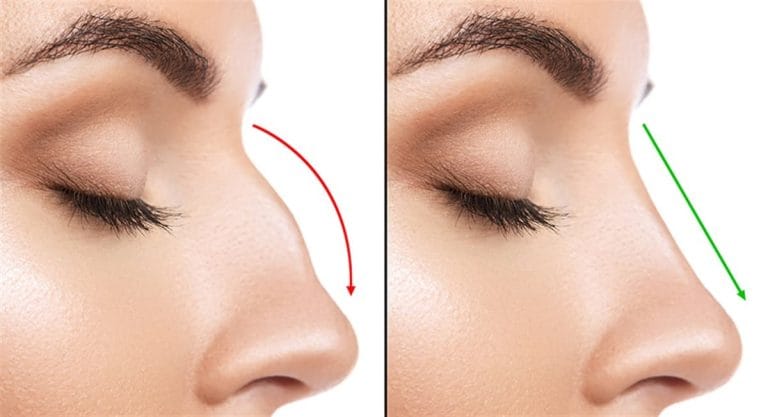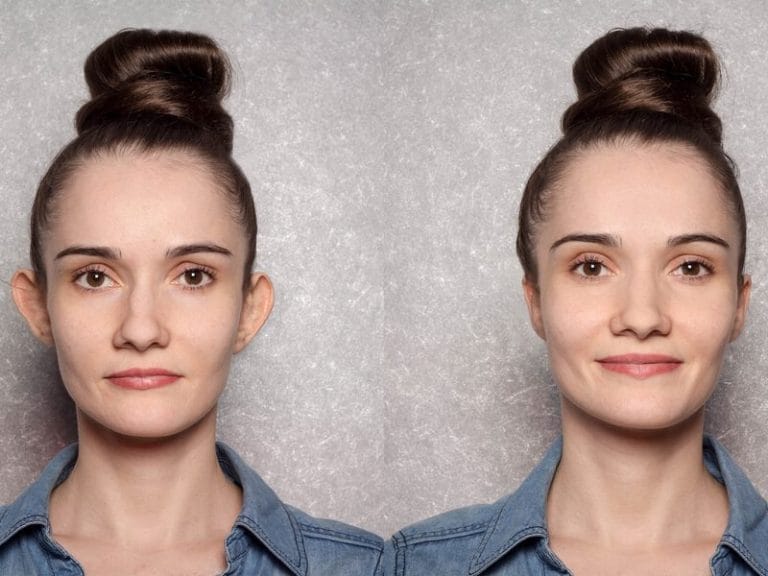Things to Know Before and After Rhinoplasty Surgery
Rhinoplasty is a surgical operation that means nose aesthetics. It is performed to correct problems with the shape, size, angle, symmetry or function of the nose. Rhinoplasty can be performed for various purposes such as improving the proportion and appearance of the face, reducing nasal obstruction, correcting deformities caused by trauma or birth defects1.
Rhinoplasty, although it may seem like a simple procedure, is actually an operation that needs to be performed very precisely and carefully. The nose is an important organ both aesthetically and functionally. The nose has many functions such as respiration, smell, voice formation, protection from infections. In addition, the nose is located in the centre of the face and influences facial expression, character and beauty. Therefore, there are some points that should be known and paid attention before and after rhinoplasty surgery.
Before Rhinoplasty Surgery
 Before deciding on rhinoplasty surgery, the person who wants to have rhinoplasty should consult a specialist doctor about his/her expectations, wishes, complaints and health status. The doctor will evaluate the patient’s nasal structure, skin thickness, facial proportion, bone and cartilage structure, nasal functions and possible complication risks and will explain the most appropriate rhinoplasty technique and results to the patient. The doctor will take photos of the patient before and after rhinoplasty and show the patient the possible postoperative appearance with computer programmes.
Before deciding on rhinoplasty surgery, the person who wants to have rhinoplasty should consult a specialist doctor about his/her expectations, wishes, complaints and health status. The doctor will evaluate the patient’s nasal structure, skin thickness, facial proportion, bone and cartilage structure, nasal functions and possible complication risks and will explain the most appropriate rhinoplasty technique and results to the patient. The doctor will take photos of the patient before and after rhinoplasty and show the patient the possible postoperative appearance with computer programmes.
Before rhinoplasty surgery, the patient must undergo some tests and make some preparations. These preparations are as follows:
- Before the operation, the patient must undergo tests such as blood count, bleeding time, clotting time, blood group, hepatitis, HIV, chest X-ray, ECG3.
- Before the operation, the patient should inform the doctor about chronic diseases, allergies, medications, previous operations, smoking and alcohol use.
- Before the operation, the patient should avoid medicines and foods such as blood thinners, aspirin, ibuprofen, vitamin E, herbal products, birth control pills. These medicines and foods may increase the risk of bleeding during and after surgery.
- Before the operation, the patient should stop smoking and drinking alcohol. Smoking and alcohol impair blood circulation, slow down the healing process and can lead to complications such as infection, impaired wound healing, skin necrosis.
- Before the operation, the patient must be hungry on the day of surgery. He/she should not eat or drink anything at least 6 hours before the operation. This is to prevent stomach contents from escaping into the lungs during anaesthesia and causing serious problems.
- Before the operation, the patient should wash his/her face and hair thoroughly and remove foreign materials such as make-up, cream, perfume, jewellery and contact lenses.
- Before the operation, the patient should wear comfortable and loose clothes, especially a shirt or blouse with an open front. This makes it easier to dress and undress after the operation.
- Before the operation, the patient must be accompanied by an attendant. This is to help the patient on returning home after surgery and during the first few days.
What is Liposuction (Liposuction)? Learn in 5 Headings
After Rhinoplasty Surgery
After rhinoplasty surgery, the patient’s recovery process begins. During this process, it is normal for the patient to experience some symptoms and follow some rules. These symptoms and rules are as follows:
- Symptoms such as swelling, bruising, pain, bleeding, discharge, crusting may be observed in the nasal region of the patient. These symptoms are the natural consequences of the surgery and decrease over time. To alleviate these symptoms, the patient should use the medication prescribed by his/her doctor, apply cold compresses, keep his/her head elevated and be careful not to hit the nasal area.
- The patient may be fitted with nasal splints, tampons or splints. These materials are used to maintain the shape of the nose, stop bleeding, reduce intranasal pressure and support nasal functions. These materials must remain in the nose for the time specified by the doctor and must be removed by the doctor.
- The patient should pay attention to nasal hygiene. After rhinoplasty surgery, the patient should pay attention to nose cleaning.
- The patient should stay away from sun, heat, cold, dust, pollen, cigarette smoke, chemical substances and sources of infection. These factors can cause irritation, allergies, infection, discolouration or deformity of the nasal area.
- The patient should avoid drugs and foods such as heavy exercise, sports, sexual activity, alcohol, smoking, blood thinners, aspirin, ibuprofen, vitamin E, herbal products, birth control pills.
- The patient must breathe through the mouth. Breathing through the nose can increase the pressure inside the nose, causing bleeding, swelling, infection or deformity. The patient should use a nasal spray to moisturise the inside of the nose and prevent dryness.
- The patient should not wear glasses. Glasses can distort the shape of the nose by putting pressure on the nose. The patient should wear contact lenses instead of glasses or adjust the glasses to support the forehead or cheeks.
- The patient should restrict facial expressions. Expressions that move facial muscles such as laughing, frowning, crying, kissing can cause tension and pain in the nasal area. The patient should minimise these expressions and move the face gently.
- The patient should pay attention to his/her diet. It should avoid hot, spicy, salty, acidic, hard, hard-to-chew foods. These foods can cause bleeding, swelling, infection, impaired wound healing or discolouration in the nasal area. The patient should eat cold, soft, easily chewed, vitamin, protein and fibre foods and drink plenty of water.
- The patient should not neglect the controls given by his/her doctor. The doctor wants to see the patient at regular intervals to follow the patient’s nasal condition, healing process, possible complications and to make necessary interventions. The patient should attend his/her doctor’s appointments on time and follow his/her doctor’s recommendations.
Rhinoplasty surgery is a safe and effective method for people who want to have rhinoplasty. However, there are some points to be considered before and after the operation. These points affect the success of the operation, the results and the patient’s satisfaction. These points affect the success of the operation, the results and the patient’s satisfaction. Thus, rhinoplasty surgery can become an experience that will beautify the patient’s face and life.





